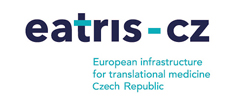
Proteomics core facility
About us
The proteomic core facility at IMTM is your next research partner in the field of clinical proteomics. With the team of highly skilled experts and the state-of-art instrumentation, we are ready to assist you in performing groundbreaking research by providing wide array of cutting edge proteomic analyses. We focus mainly on the field of body fluid protein biomarkers, but our experts can help with many other research tasks, where proteomics could help to differentiate regular research to outstanding one.
Why choose us
- Cutting-edge technology: We offer proteomic analyses consisting of careful sample preparation, analysis on state-of-art LC-MS instruments and evaluation in the most up-to-date search engines, specifically tuned to handle large amounts of data
- Expert Team: Our team of experienced scientists and technicians are here to provide personalized assistance and support throughout your proteomics projects.
- Customized solutions: Every research task is unique and particularly in the field of clinical and translational proteomics. We know the value of your samples and we can find a solution fitting your research task and your budget to obtain the best results possible.
- Biobanking and data storage: Together with the biobanking core facility, we can take a care of your valuable samples and even more valuable results for the future outstanding results.
LC-MS DDA proteomics
The connection of separation power and reproducibility of liquid chromatography with accuracy and sensitivity of mass spectrometry allowed the fast development of the proteomics in the past and still is considered as the standard approach in the current proteomics. After decades of development, LC-MS proteomics is currently extremely sensitive and accurate method allowing to identify and semi-quantify thousands of proteins from cells or tissues and hundreds of proteins from body fluids. At IMTM’s proteomic core facility we offer established LC-MS protocols verified by many publications, regularly checked by stringent quality control. The traditional approach of protein identifications is called data-dependent acquisition (DDA) and is the method of choice in the characterization of the unknown sample.
LC-MS DIA proteomics
For the analysis of the higher amount of similar samples, there could be used with benefit another approach, data-independent acquisition. This approach brings better coverage and quantification of the samples, because of the different algorithms comparing directly the obtained mass spectra of all samples and comparing to the central library. At the IMTM’s proteomic core facility, we have the state-of-art analytic and software tools for this kind of higher throughput analyses.
Targeted proteomics
Targeted proteomics trades off the identification power for the high throughput. The targeted proteomics is the best method for the analysis of known proteins in the bigger sets of samples. At the IMTM’s proteomic core facility, we can offer targeted protocols using traditional Q-trap or Q-TOF instruments as well as using next-generation Thermo SureQuant assay.
Kinase assays
The kinase assays offered by IMTM’s proteomic core facility allow to monitor kinase kinetics or inhibitors by targeted MS analysis of nascent and phosphorylated substrate. This assay is high-throughput, optimized for fast inhibitor screening.
MALDI-TOF analysis
For the protein identification from electrophoretic bands or spots, we can still provide traditional MALDI-TOF based protein mass fingerprinting. Compared to LC-MS, MALDI-TOF based identifications allows faster analysis of the proteins of interest with reasonable throughput. This method is suitable to single proteins purified by electrophoresis or the other method, but for the protein mixtures we can offer better methods.
Multiplex immunology assays
The Luminex multiplex immunoassay can identify and quantify up to 100 proteins, cytokines or nucleic acids from very small amount of biological material at once. This system is very versatile and can provide fast and cost-effective results. Because the Luminex assay is based on immunoassays, it allows to use the benefit of 96-well plates and analyze with high throughput.
Custom LC-MS analyses and method development
Development of custom analytical approaches for specific tasks using liquid chromatography and mass spectrometry, mainly in the field of biomolecules analysis.
Bioinformatic support
The current proteomic technologies allow to identify and quantify thousands of proteins and their variants. In typical proteomic experiment, there are compared two or more conditions. Those conditions usually manifest with changes in abundance of particular proteins. Nowadays, there are identified not only the single differentially regulated proteins, but rather the complex pathways. Processing of this kind of data could be very challenging and our team of bioinformatics experts can help with any issue regarding computational processing and bioinformatic evaluation of proteomic results.
Consultations and trainings
The highly experienced staff on the IMTM’s proteomic core facility can be more than helpful in the design and proper training in the experiments requiring proteome analysis at any point of biomedical research.
ThermoFisherScientific LC-MS system for proteomic studies
Zarezervovat tento přistrojAB SCIEX mass spectrometer TripleTOF ™ 5600 +
Zarezervovat tento přistrojAB SCIEX QTRAP 5500 Tandem mass spectrometer
Zarezervovat tento přistrojBruker ™ ultrafleXtreme MALDI-TOF/TOF mass spectrometer
Zarezervovat tento přistrojIf you have any questions or would like to discuss your genomics research needs, please don't hesitate to reach out to us. Our friendly and knowledgeable team is ready to assist you. You can contact us through the following methods:
- Phone: +420 585 632 145
- Email: proteomics.imtm@imtm.cz
- Location: Institute of Molecular and Translational Medicine, Faculty of Medicine and Dentistry and Czech Advanced Technology and Research Institute, Palacky University, Hnevotinska 5, 779 00 Olomouc, Czech Republic
We are excited to be a part of your genomics research journey and look forward to collaborating with you on groundbreaking discoveries that will shape the future of science and medicine. Let's unlock the potential of genomics together!

